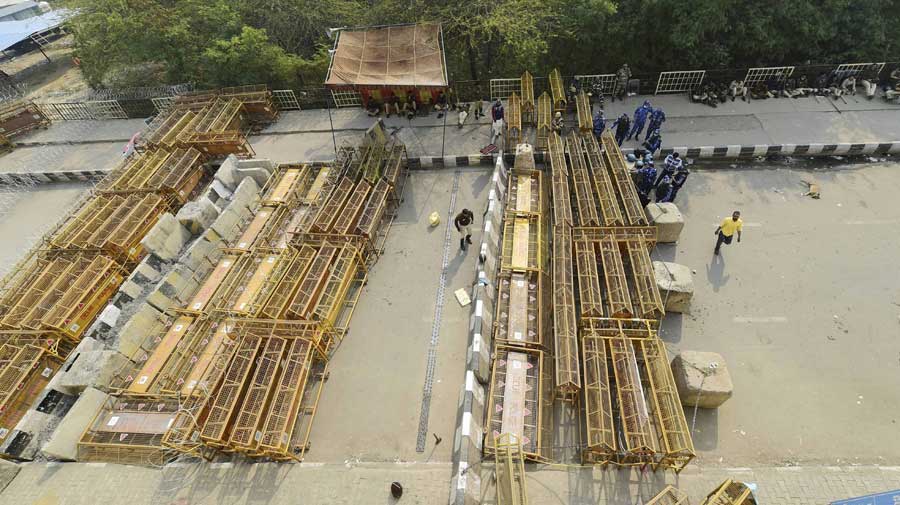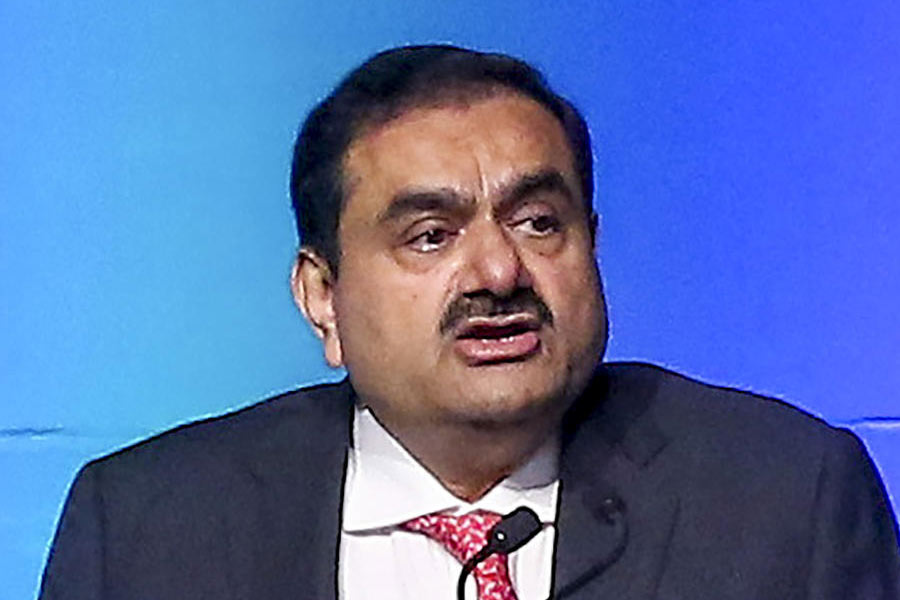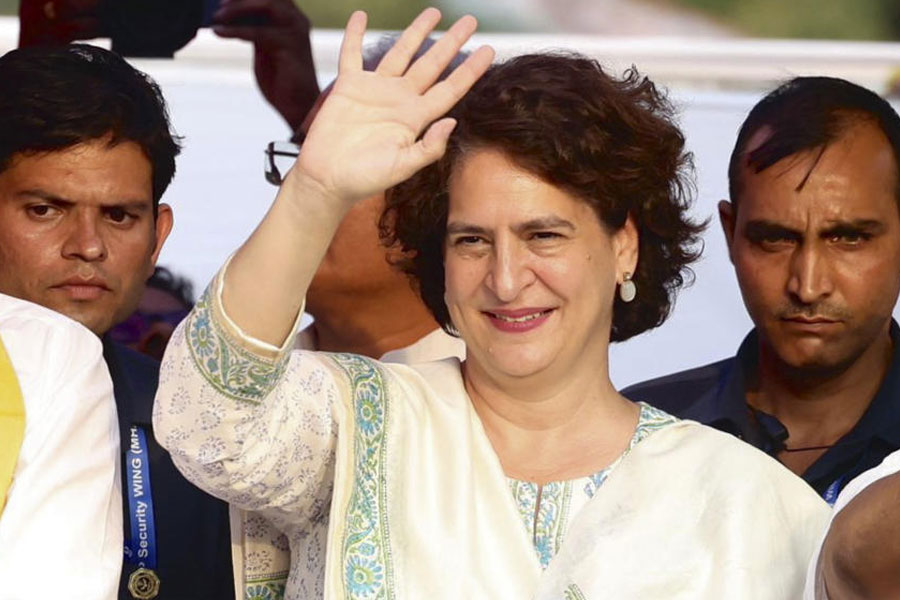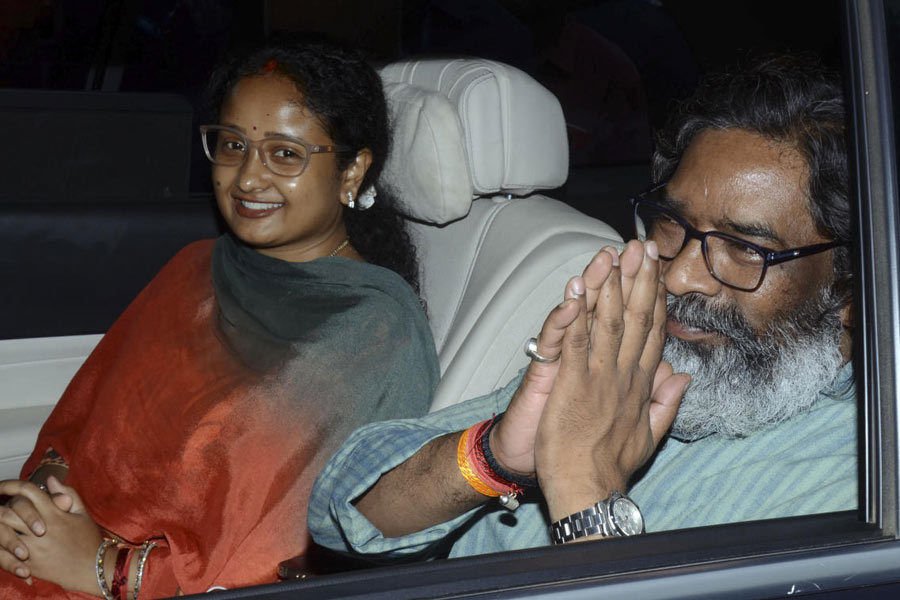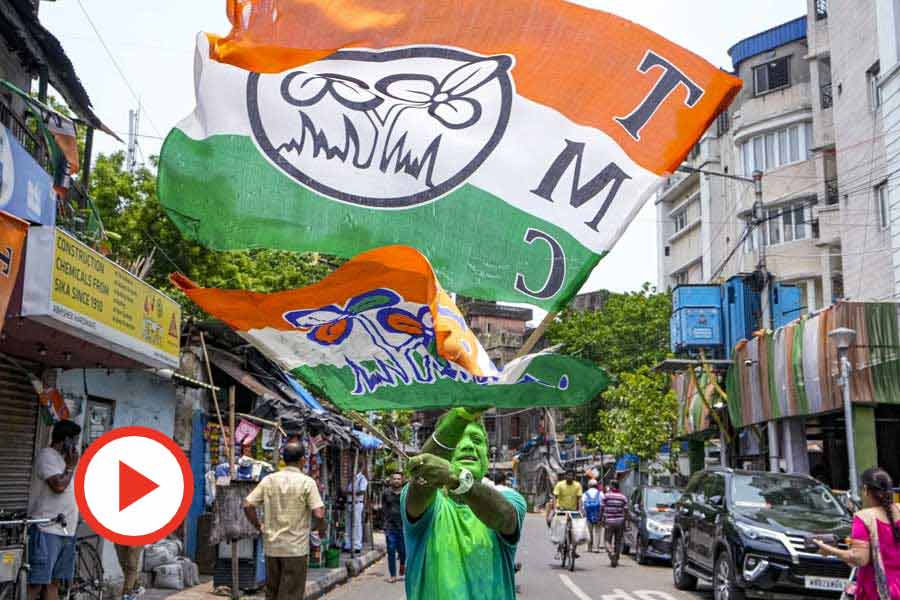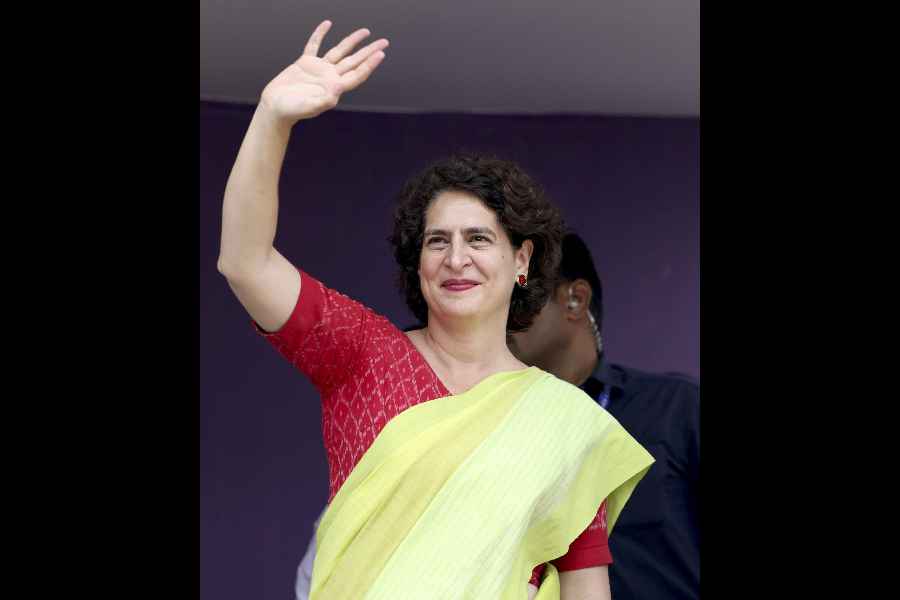Police outnumbered those who turned up for a “Citizens’ March in Support of the Farmers’ Movement” on Wednesday, prompting a participant to exclaim: “Are we terrorists?”
A myriad of uniforms — Delhi police, the Tripura India Reserve Battalion, Central Reserve Police Force, Central Industrial Security Force and the Sashastra Seema Bal —cordoned off all approaches to the Mandi House traffic island from Lutyens’ Delhi and prevented the march from taking place.
College students usually form the critical mass of such protests, but with almost all classes online, few turned up for the march. However, several older people — common folk, housewives and even government employees — came to the march and expressed shock at the fortress the capital had turned into since Republic Day.
A government employee who took half a day off to attend the march with her son wandered into a posse of armed policemen and loudly exclaimed: “Are we terrorists?”
She later told The Telegraph: “I felt bad for the farmers because the laws were made in haste without hearing from them. I felt worse seeing them out for months in the cold, and all the nonsense being shown about them on TV. I overcame my apprehensions to come here after seeing these nails being fixed on the roads and the trenches being dug by the police. It is important for all of us to come for things like this as the government is becoming more autocratic.”
Several flags of the Congress’s National Students Union of India and the CPM-backed Students Federation of India dotted the protest. The march was called by several mass organisations of the Left parties, Congress and the Aam Aadmi Party, as well as civil society groups.
Four tall Sikh men came to watch the gathering from afar, but soon left. “We came to see whether this is a genuine protest, but we see there are flags of political student groups. At the protest sites farmers only fly their farmers’ unions flags,” one of them told reporters as they left.
One Sikh couple stayed. Satinder Singh and Ravinder Kaur from west Delhi’s Janakpuri survived the 1984 riots in the capital thanks to their non-Sikh neighbours, they said, who patrolled the street below their home and prevented any rioters from getting close.
“I do feel uncomfortable, scared when I hear farmers being called Khalistani, or anti-CAA protestors being called Muslims. They have not found a term for (farm leader Rakesh) Tikait yet. But like there were good people then (’84), there are good people now. Besides, the Internet keeps us all connected and dispels rumours. That’s why the police have cut off the Internet at the borders (of the city) to make it tough for the truth to be told,” Singh said.
He read about the march on Twitter. “I help in whatever way I can. I contributed money to the organisers at the protest sites. I try to come and stand wherever there is a protest in favour of farmers, because I believe these laws are unjust and should be repealed. Yes, I saw the flags of the student groups and felt it would be better to fly flags of farmers’ groups, but people will fly whatever flags they have,” he told this paper.
Kaur said: “The Nishan Sahib which was hoisted at the Red Fort (on Republic Day by protesters who deviated from the planned route of the tractor rally) is seen by us as a symbol of humanity. No one objects when a langar is served under the Nishan Sahib. Like Bhagat Singh’s bomb (in the colonial Central Legislative Assembly) that killed none but was thrown to make the deaf hear, this flag was also hoisted under the Tricolour to wake up the government. I feel sad that farmers are called anti-India because some people hoisted the Nishan Sahib.”
The police distributed copies of a letter to protesters, saying that any gatherings are only permitted at Jantar Mantar —the intended destination of the march, and made announcements on a megaphone to disperse as prohibitory orders are in force for the pandemic. Over the last few months, several motorcycle rallies have been held in the capital to collect funds for building the Ram Mandir in Ayodhya.
Sanjeev Kumar, who takes tuitions in northwest Delhi’s Rohini, was pleased to make his protest debut with two family members.
“For some time now, the norms of democracy are being changed. All rights are under attack, there are fewer jobs than before, and even protests are not allowed. A pre-planned narrative has been created to defame anyone who protests, and we are also scared but decided to come here despite our fears.”
Mishika Singh, a human rights lawyer, told this paper that the average age of the protester seemed definitely higher to those accustomed to earlier marches in the area.
“The police have found it easier to oppress students, they can’t use their usual kind of force today. It is high time the government seriously hears what is being said, rather than use the police as a shield. The stakes are much higher today for all citizens.”
Kejriwal assurance
A day after farmer leaders met Delhi chief minister Arvind Kejriwal to push for the release of those arrested during the farmers’ protest, the AAP leader issued a list of 115 people held in Tihar Prisons with details of which jail they are in.
He said: “It is possible that many of those missing had been arrested in connection with the chaos at the Red Fort, due to which they are not able to connect to their families. We have created a list of the people who are in jails in connection with (the) January 26 (incidents)…. If we continue to receive reports even after issuing this list, as the chief minister of the state, I have assured the farmers’ unions that I will try my best to trace the missing persons and connect them with their families. If required, I will also talk to Hon’ble LG and the Centre in this regard.”
Kejriwal’s step is seen as cautious as there was speculation that he would order a magisterial probe like he did after the police crackdown on JNU in 2016. Delhi police have also issued a list with the names of 122 people who were arrested during the agitation.

